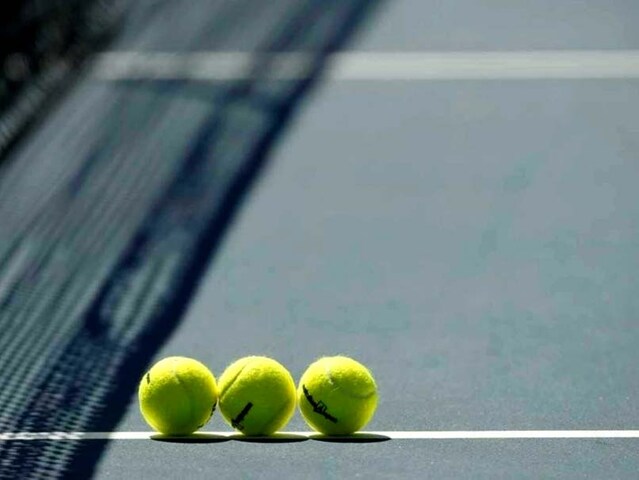'Tsunami' Of Match-Fixing In Lower-Level Tennis: Review Panel
Lower-level tennis has a "tsunami"-like problem with match-fixing, according to a review body set up to look into allegations of corruption in the sport
- Agence France-Presse
- Updated: April 25, 2018 10:23 pm IST

Highlights
-
The Independent Review Panel (IRP) published its findings on Wednesday
-
The panel made several recommendations to tackle corruption
-
'There was "match-fixing 'season' from October until the end of the year'
Lower-level tennis has a "tsunami"-like problem with match-fixing, according to a review body set up to look into allegations of corruption in the sport. The Independent Review Panel (IRP), which published its findings on Wednesday, says there is a "very significant" corruption problem at "lower and middle levels of the sport", and especially in the men's game. The panel was set up in January 2016 following allegations made by the BBC and Buzzfeed that leading players, including Grand Slam winners, were involved in suspected match-fixing and that evidence had been suppressed.
The panel -- which spoke to over 100 players and, according to the BBC, cost £20 million ($27.9 million, 22.8 million euros) to fund -- found no evidence to support those allegations.
However, it said there was a "match-fixing 'season'" from October until the end of the year with "traces of up to two or three fixed matches per day" in International Tennis Federation (ITF) tournaments, which are the lowest level of men's events.
However, the highest level competitions and governing bodies did not escape criticism.
Investigation of suspicious incidents at Grand Slam events was deemed "insufficient" by the report, while other enquiries were "inappropriate or ineffective, resulting in missed opportunities".
The ATP, the governing body of men's professional tennis, were also found to be guilty of "failing to exhaust potential leads before ending investigations".
The panel claimed tennis faces a "serious integrity problem", particularly at the lower levels of the sport where players often struggle to break even, and especially on the men's circuits.
- 'Educate the entourage' -
The panel made several recommendations to tackle corruption because it believes the current system used by the TIU (Tennis Integrity Unit) and international governing bodies is "inadequate to deal with the nature and extent of the problem now faced".
Among those recommendations was that betting companies should stop being allowed to sponsor tournaments -- a move sure to be welcomed by Britain's two-time Wimbledon champion Andy Murray who in 2016 labelled their sponsorship as hypocritical.
The panel also called for the TIU to be reorganised and reformed although they launched a new strategy in their war on corruption last year.
The panel's findings that it had not uncovered any evidence of institutional corruption were welcomed by the ITF, ATP and WTA as well as the four heads of the Grand Slam tournaments.
However, they accepted the need for firm and decisive action to address the concerns raised about the lower level tours.
"Following an initial review of the Interim Report we confirm our agreement in principle with the package of measures and recommendations proposed by the IRP," read their joint statement.
"These include the removal of opportunities and incentives for breaches in integrity, the establishment of a restructured, more independent TIU, enhanced education, expanded rules, and greater co-operation and collaboration with the betting industry and broader sports community."
The report received 3,200 survey responses from players at all levels around the world, of which 464 said they had first-hand knowledge of match-fixing.
Enhanced education was an area already being addressed by the TIU.
Phil Suddick, information manager at the TIU, told AFP in a rare interview in September last year the unit believed that a focus on education as crucial to combatting corruption within the sport.
Suddick said to nip such practises in the bud it was crucial to address the junior players and their parents.
"It is the parents who tend to be coaches and the people who travel with them and it is they who will notice a sponsorship deal that isn't really one," said Suddick.
"This could be a person who pays for flights and hotels, which is the thin end of the wedge, but the wedge can grow into something larger down the line.
"We have to educate the entourage around the juniors from the coach, the parents to the hitting partner and others involved."
